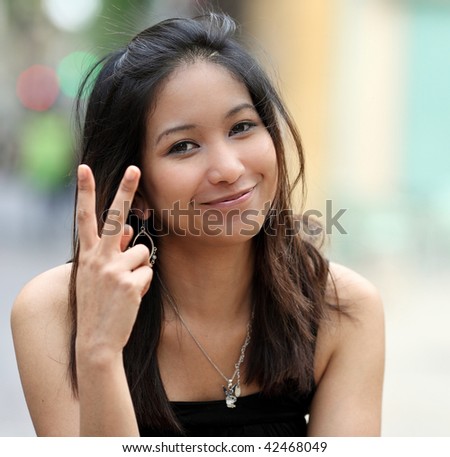Cookware Marriage Tradition
The Cookware marriage culture is based on person notions of affection, and value for the bride plus the home. It is not seen as an burden pertaining to the groom, and most Oriental families dating asian women allow all their daughters to select who they would like to marry. Asian women of all ages are becoming more independent, qualified, and career-driven. Though Hard anodized cookware culture still values humbleness and admiration, the trend dating asian women is shifting toward modern-day ways of performing things. Should you be looking at an Hard anodized cookware marriage, follow this advice to make that successful.

Authenticity: Asian girls value credibility and authenticity. While it may go temporarily to portray yourself because someone else, it will likely backfire eventually. Women choose men who will be completely genuine and devoted to their relationship and relatives. They will under no circumstances cheat issues spouse, so long as he’s monetarily to blame and willing to pay their period with the home. In short, if you wish to impress a great Asian girl, be your self.
Polygamy: In Asia, polygamy is usual, and some groups practice five-hundred or more children per female. However , the increased amount of working ladies is affecting the pattern of marriages. The Philippines is a good decision for a wife if you’re willing to marry a Chinese lady. However you have to remember that the Far east birdes-to-be rarely check out foreign countries. This compare in cultural worth can make it complex to marry a Chinese woman.
Hard anodized cookware Women Worth Marriage: Even though divorce is legal in most countries, most Asian women consider marital relationship to be the supreme expression of love. While Traditional western men are more inclined to think marriage may be a lifelong commitment, Asian females prioritize all their family and their profession, and the pleasure of their liked kinds is the most important thing in their lives. If you’re an Asian person looking for a better half, don’t be scared to ask her about her relationship culture.
Arranged marital life: Many Cookware families still practice arranged marriages. While older generations have little say in choosing a other half, younger japan mail order brides generations are more likely to play an active role. The search for a suitable special someone often starts with a great ‘auntie network’: the aunts and future uncles of the wedding couple. They pass on information about the young people exactly who are suitable for marital life. Other parents opt to make use of matrimonial adverts or perhaps professional matchmakers.
Changing Family Framework: In East Asia, relationships are becoming more challenging to find. For instance , men are less likely to get married to at a new age, regardless of the many benefits of marriage. Ladies, however, are expected as the primary caregivers and to be in this purpose despite having a demanding job. In Japan, women are working for 40 hours a week at the office, while men perform simply three several hours of cleaning each day. The pressure of the work schedule is enormous, and it makes it difficult with regards to Asian women of all ages to return to operate when youngsters have become up.
Despite the social pressures and lowered get older limits, the Hard anodized cookware marriage traditions still keeps some one of a kind characteristics that distinguish it from other cultures. In China, females can legally marry at twenty, and unmarried women of all ages have five years to find a life partner. This cultural pressure pushed 1000s of Chinese girls to seek lovers from the Western world. Similarly, Thailand has two sorts of marriage: the original Buddhist wedding and the civil union. These is one of the norm for many couples.
The wedding service begins with an exchange of Reason among close relatives over the bride and groom’s ends. The exchange of Sake also signifies the union through matrimony. After the drinks have been traded, the couple then profits to a refuge to offer a furnished twig of Sakaki shrub, a holy tree in Buddhist worship. The ceremony ends with a prayer. Typically, the bride and groom also exchange gifts, just like an Obi, which presents female advantage, and a Hakama, a traditional Buddhist wedding product. The Yui-no ceremony at Honganji Temple is detailed with gifts and prayers via both sides from the family.



Leave a Comment